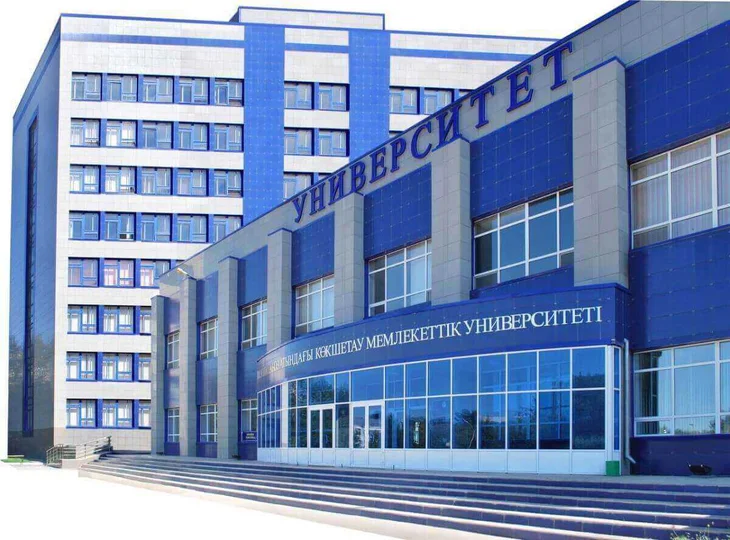Primary education (IP)

Educational program code
6В01302
Language of instruction
Kazakh, Russian
Learning level
Undergraduate
Duration of study
4 year
Specialized subjects
Biology
Geography
Objectives of the educational program
Training of a primary education teacher with general, pedagogical and subject competencies, able to successfully carry out professional activities based on constructive coordination and modern educational trends
- History of Kazakhstan
- Philosophy
- Sociology
- Political science
- Culturology
- Psychology
- The Kazakh (russian) language
- Foreign language
- Information and communication technologies
- Physical Training
- Training internship (introductory) (Introduction to the teaching profession)
- Psychological-pedagogical pratice (Psychological and pedagogical assessment)
- Teaching internship (Pedagogical approaches)
- In-company pedagogical internship (Research and innovation in education)
- Age and Physiological Features of the Development of Children
- Inclusive Educational Environment
- Research, Development and Innovation
- Teaching Methods and Technologies
- Educational Science and Key Theories of Learning
- Assessment and Development
- Pedagogical Research
- Teaching Planning and Individualization of Learning
- Psychology in Education and Concepts of Interaction and Communication
- Distance Learning in Primary Schools
- Cognitive development and critical thinking of primary school children
- Conceptual Foundations of Mathematical Education
- Methodic of Teaching Literacy and Calligraphy
- Methodic of Teaching Natural Science and Knowledge of the World in Primary School
- Methodic of Teaching Literary Reading
- Methods of Teaching Mathematics with a Practical Course on Solving Problems
- Methodic of Language Education of Primary School Children
- Features of the educational process in an ungraded primary school
- Primary School Pedagogy
- Nature and Society
- Psychology of Preschool and Primary School Age
- Theory and Technology of Educational Work in Primary School
Research Methods
Entrepreneurial skills
Basics of an anti-corruption culture
Basics of Economics and Law
Ecology and life safety
Basics of Modern Kazakh (Russian) Language
Pedagogical Rhetoric
Art Education in Primary School
Safe School Environment and Child Welfare
Global Perspectives in Education
Children''''s Literature and Text Analysis
Fine Arts and Labor in Elementary School
Content and Language Integrated Learning (CLIL) in Primary schools
Local History
Methodic of Teaching a Foreign Language in Primary School
Primary School Student in the World of a Foreign Language and Culture
Leisure Pedagogy
Workshop on the Formation of Speech Activity
Prevention of School bullying
Development of the Research Activity of the Younger Shoolchild
Robotics in Elementary School
Modern Technologies in Primary Education
Creating Projects in Elementary Grades
Theatrical Pedagogy
Tutoring in Primary Education
Digital Learning and Media Literacy in Primary Education
Ethnopedagogy
STEAM-Education of Primary School Children
Learning outcomes and competencies
- Apply interdisciplinary knowledge and experience for ideological, historical and moral development in accordance with the social, business, cultural, legal and ethical norms of Kazakhstan society
- Are able to communicate constructively and interact orally and in writing in Kazakh, Russian and foreign languages at the level of interpersonal, social, professional and research activities
- Are able to organize a working environment, consciously work in accordance with international and national documents, principles, laws and rules of the national education system in conjunction with the activities of their organization and multidisciplinary cooperation
- Are capable of professional development and lifelong learning; reflect and critically evaluate their values, attitudes, ethical principles, working methods, as well as set new goals for improving primary education in the interests of sustainable development, the development of their organization and professional well-being
- Are able to apply knowledge of pedagogy and psychology for the upbringing, development, organization of life and activities of primary school children, taking into account the principles of personality-oriented, competence-based, inclusive approaches
- Is able to design a safe, barrier-free developing subject-spatial environment for all children, including children with special educational needs
- Apply professional knowledge related to the outlook, awareness in the theory of elementary school disciplines, the logic of building a school course for grades 1-4
- Demonstrate proficiency in technologies and methods of teaching and evaluating private disciplines in primary school offline and online, including in a small school
- Is able to model and organize active and integrated learning for the development of functional literacy, research skills and creativity, supporting the development and well-being of each student
- Are able to manage the educational process based on national and regional characteristics, monitor the educational process, analyze and use its results to improve their own teaching
- Are able to independently and in a team carry out research work in the field of primary education at the local, regional, national, or international level, observing the norms of pedagogical ethics and the principles of academic integrity
- Are able to develop emotional intelligence skills and leadership qualities to create an atmosphere of well-being within the framework of cooperation and co-creation with the parent and pedagogical community